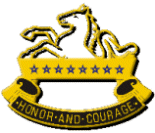SERMON OUTLINE 003--19 NOV 2006
Grace
19NOV06
I. Introduction: Seeking Grace
- 1. Courage of Joshua
2. Humility of Andrew
3. Hope/Perseverance of Nehemiah
4. Passion of David
B. Challenges in the military
- 1. The updated deployment schedule came out this week. It seems like the Army is
having a difficult time trying to ensure that everyone gets to stay home at least
one year before they redeploy back to Iraq or Afghanistan.
2. Election results have created a sense of doubt as to the future of our operations.
3. As we move into the holiday season, we miss our families and friends even more.
4. The pace can easily begin to wear us down.
C. The world as our reflection
- 1. When we look at the world, we often see our reflection. If we are insecure, petty, and suspicious people, the world will seem out to get us.
2. How do you see the world?
3. How often do you see God in it?
II. What is grace?
15 When Joseph’s brothers saw that their father was dead, they said, “Perhaps Joseph will hate us, and may actually repay us for all the evil which we did to him.” 16 So they sent messengers to Joseph, saying, “Before your father died he commanded, saying, 17 ‘Thus you shall say to Joseph: “I beg you, please forgive the trespass of your brothers and their sin; for they did evil to you.” ’ Now, please, forgive the trespass of the servants of the God of your father.” And Joseph wept when they spoke to him.
18 Then his brothers also went and fell down before his face, and they said, “Behold, we are your servants.”
19 Joseph said to them, “Do not be afraid, for am I in the place of God? 20 But as for you, you meant evil against me; but God meant it for good, in order to bring it about as it is this day, to save many people alive. 21 Now therefore, do not be afraid; I will provide for you and your little ones.” And he comforted them and spoke kindly to them. Genesis 50:15-21
B. Revenge or Mercy?
- 1. Joseph could have been bitter, but instead he saw God working in the world.
2. Retribution is the rule. If we do not payback what is done to us, we lose face and
honor.
3. The insurgents are counting on the culture of revenge
4. What culture are we creating? Illustration: disrespect towards an Iraqi worker.
C. Grace is holding the destiny, the life of your enemy in your hand, but forgiving him like a brother. Illustration: In the book Bono: In Conversation with Michka Assaya, the lead singer and songwriter for the rock group U2 makes an explicit confession of faith: "It's a mind-blowing concept that the God who created the universe might be looking for company, a real relationship with people, but the thing that keeps me on my knees is the difference between grace and karma." Saying that the idea of karma is central to all religions, Bono explained:
What you put out comes back to you: an eye for an eye, a tooth for a tooth, or in physics—in physical laws—every action is met by an equal or an opposite one. It's clear to me that karma is at the very heart of the universe. I'm absolutely sure of it. And yet, along comes this idea called grace to upend all that "as you reap, so you will sow" stuff. Grace defies reason and logic. Love interrupts, if you like, the consequences of your actions, which in my case is very good news indeed, because I've done a lot of stupid stuff….It doesn't excuse my mistakes, but I'm holding out for grace. I'm holding out that Jesus took my sins onto the cross, because I know who I am, and I hope I don't have to depend on my own religiosity.
III. What are its conditions?
36 Then Jesus came with them to a place called Gethsemane, and said to the disciples, “Sit here while I go and pray over there.” 37 And He took with Him Peter and the two sons of Zebedee, and He began to be sorrowful and deeply distressed. 38 Then He said to them, “My soul is exceedingly sorrowful, even to death. Stay here and watch with Me.”
39 He went a little farther and fell on His face, and prayed, saying, “O My Father, if it is possible, let this cup pass from Me; nevertheless, not as I will, but as You will.”
40 Then He came to the disciples and found them sleeping, and said to Peter, “What! Could you not watch with Me one hour? 41 Watch and pray, lest you enter into temptation. The spirit indeed is willing, but the flesh is weak.”
42 Again, a second time, He went away and prayed, saying, “O My Father, if this cup cannot pass away from Me unless I drink it, Your will be done.” 43 And He came and found them asleep again, for their eyes were heavy.
44 So He left them, went away again, and prayed the third time, saying the same words. 45 Then He came to His disciples and said to them, “Are you still sleeping and resting? Behold, the hour is at hand, and the Son of Man is being betrayed into the hands of sinners. 46 Rise, let us be going. See, My betrayer is at hand.” Matthew 26:36-46
A. Grace usually follows after a painful experience.
- 1. Does God call us to endure, to trust, to have faith in order that we live pain free lives?
2. In fact, a precondition for grace seems to be sorrow. The woman caught in adultery in the gospel of John is forgiven, but she still must face the shame that comes from her acts.
3. Peter betrays Jesus three times before the cock crows, while Christ proclaims his faith in God’s will three times before the morning dawn.
B. Grace will always be associated with pain because a necessary precondition of grace is sin.
- 1. Christ was resolute in doing what God asked of him.
2. Illustration: Jim Collins, the author of Good to Great, interviewed Admiral Jim Stockdale, the highest-ranking officer in the Hanoi Hilton prisoner of war camp during the height of the Vietnam War. Regarding the prisoner of war camp, Collins asked Stockdale,
"Who didn't make it out?"
"Oh, that's easy," answered Stockdale. "The optimists."
"The optimists? I don't understand," responded Collins.
"The optimists. Oh, they were the ones who said, 'We're going to be out by
Christmas.' And Christmas would come, and Christmas would go. Then they'd say, 'We're going to be out by Easter.' And Easter would come, and Easter would go. And then Thanksgiving, and then it would be Christmas again. And they died of a broken heart. This is a very important lesson. You must never confuse faith that you will prevail in the end—which you can never afford to lose—with the discipline to confront the most brutal facts of your current reality, whatever they might be."
IV. What are we to do with grace?
B. Do we create an environment that allows God’s love to ripple outwards toward the world, or do we try to dam up and limit its reach?
- 1. Congregations do not necessarily provide the best soil for growing grace. Illustration:
Churches that stifle confession of sin. Why is a tavern a more safe environment
to share one’s sins than the church?
2. The Army, with its no-fault, no weakness environment, can all too often silence that still, small voice of God. Illustration: soldiers coming to talk to the chaplain because no one else will listen.
V. Conclusion
B. This Thursday, in America and on bases throughout Iraq and Afghanistan, we will celebrate Thanksgiving. As we have gone about are daily struggles that come with a deployment to a combat zone, have we stopped to take the time to see where God is working in our lives? Have stopped to give thanks for the simple yet important things that allow us to experience His joy?
C. When you look at the world, what do you see? Illustration: A man whom many believe was the greatest American president is a good example. When he was 7 years of age, his family was forced out of their home, and he went to work. When he was 9, his mother died. He lost his job as a store clerk when he was 20. He wanted to go to law school, but he didn't have the education. At age 23 he went into debt to be a partner in a small store. Three years later the business partner died, and the resulting debt took years to repay. When he was 28, after courting a girl for four years, he asked her to marry him, and she turned him down. On his third try he was elected to Congress, at age 37, but then failed to be re-elected. His son died at 4 years of age. When this man was 45, he ran for the Senate and lost. At age 47 he ran for the vice-presidency and lost. But at age 51 he was elected president of the United States.
The man was Abraham Lincoln, a man who learned to face discouragement and move beyond it. Did you know that it was Abraham Lincoln who, in the midst of the Civil War, in 1863, established the annual celebration of Thanksgiving? Lincoln had learned how important it is to stop and thank God in the midst of great difficulties.
D. What did God do when He looked at His world? The Season of Advent, the arrival of the Messiah, is upon us.





No comments:
Post a Comment